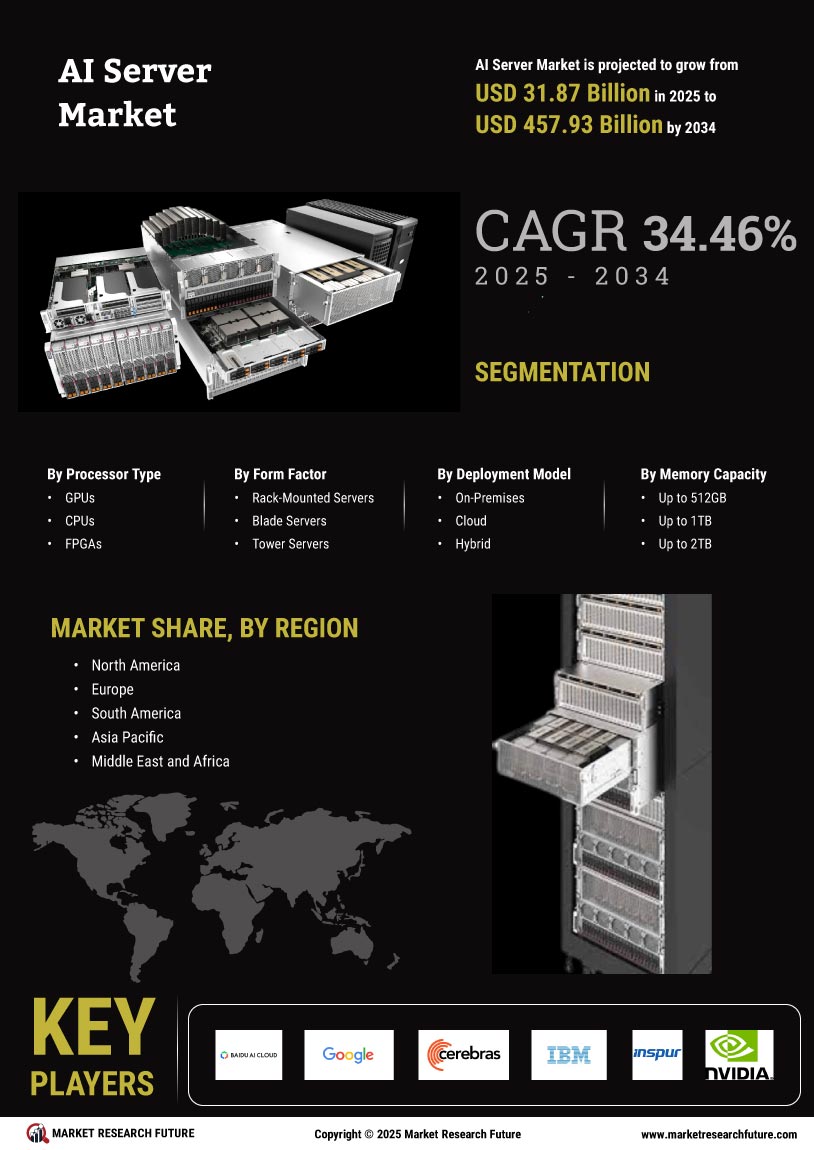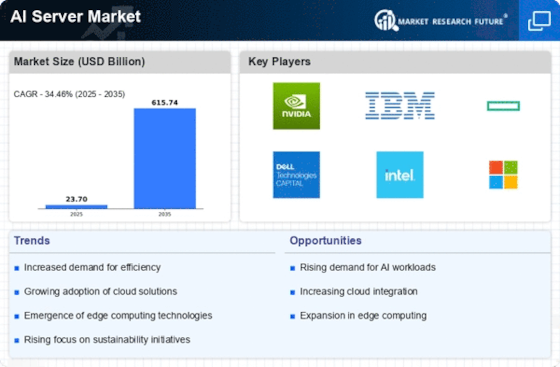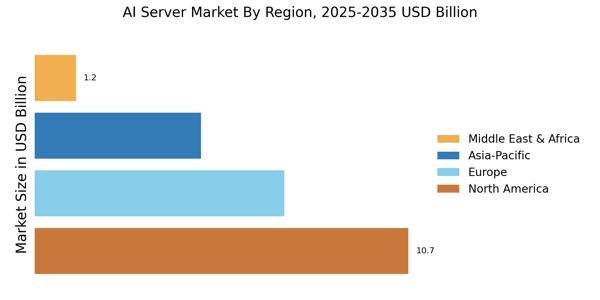Growing Demand for Data Processing
The AI Server Market is experiencing a surge in demand for data processing capabilities. As organizations increasingly rely on data-driven decision-making, the need for robust AI servers that can handle large volumes of data efficiently becomes paramount. According to recent estimates, the data generated globally is expected to reach 175 zettabytes by 2025, necessitating advanced processing power. AI servers equipped with high-performance GPUs and optimized architectures are essential to meet this demand. This trend is likely to drive investments in AI server technologies, as businesses seek to enhance their analytical capabilities and improve operational efficiency. Consequently, the AI Server Market is poised for substantial growth as enterprises prioritize data processing solutions that can support their evolving needs.
Emergence of AI-Driven Applications
The AI Server Market is witnessing a notable rise in the emergence of AI-driven applications across diverse sectors. Industries such as healthcare, finance, and manufacturing are increasingly adopting AI solutions to enhance operational efficiency and improve customer experiences. This trend necessitates the deployment of powerful AI servers capable of supporting these applications. For example, the healthcare sector is leveraging AI for predictive analytics and personalized medicine, which requires substantial computational resources. As the demand for AI-driven applications continues to grow, the AI Server Market is likely to expand, driven by the need for servers that can handle the complexities and demands of these innovative solutions.
Focus on Scalability and Flexibility
The AI Server Market is characterized by a growing focus on scalability and flexibility in server solutions. As businesses expand their AI initiatives, the ability to scale server resources efficiently becomes crucial. Organizations are increasingly seeking AI servers that can adapt to changing workloads and support a variety of applications. This trend is particularly evident in sectors where rapid growth and fluctuating demands are common. The market is responding by offering modular and flexible server architectures that allow for easy upgrades and expansions. This emphasis on scalability is likely to drive the adoption of AI servers, as companies prioritize solutions that can grow alongside their evolving AI strategies.
Advancements in Machine Learning Algorithms
The AI Server Market is significantly influenced by advancements in machine learning algorithms. As these algorithms become more sophisticated, they require increasingly powerful computing resources to train and deploy effectively. The emergence of deep learning techniques, which often necessitate extensive computational power, is a key driver for AI server adoption. Organizations are investing in AI servers that can support these advanced algorithms, leading to improved performance and faster processing times. The market for AI servers is projected to grow as companies recognize the importance of leveraging cutting-edge machine learning capabilities to gain a competitive edge. This trend indicates a strong correlation between algorithmic advancements and the demand for high-performance AI server solutions.
Increased Investment in AI Research and Development
The AI Server Market is benefiting from heightened investment in AI research and development across various sectors. Governments and private enterprises are allocating substantial resources to explore innovative AI applications, which in turn drives the need for advanced server infrastructure. For instance, funding for AI initiatives is projected to exceed 100 billion Usd by 2025, reflecting a commitment to harnessing AI's potential. This influx of capital is likely to stimulate demand for AI servers that can support complex computations and large-scale data analysis. As organizations strive to remain at the forefront of AI technology, the AI Server Market is expected to expand, driven by the necessity for robust server solutions that facilitate research and development efforts.

















